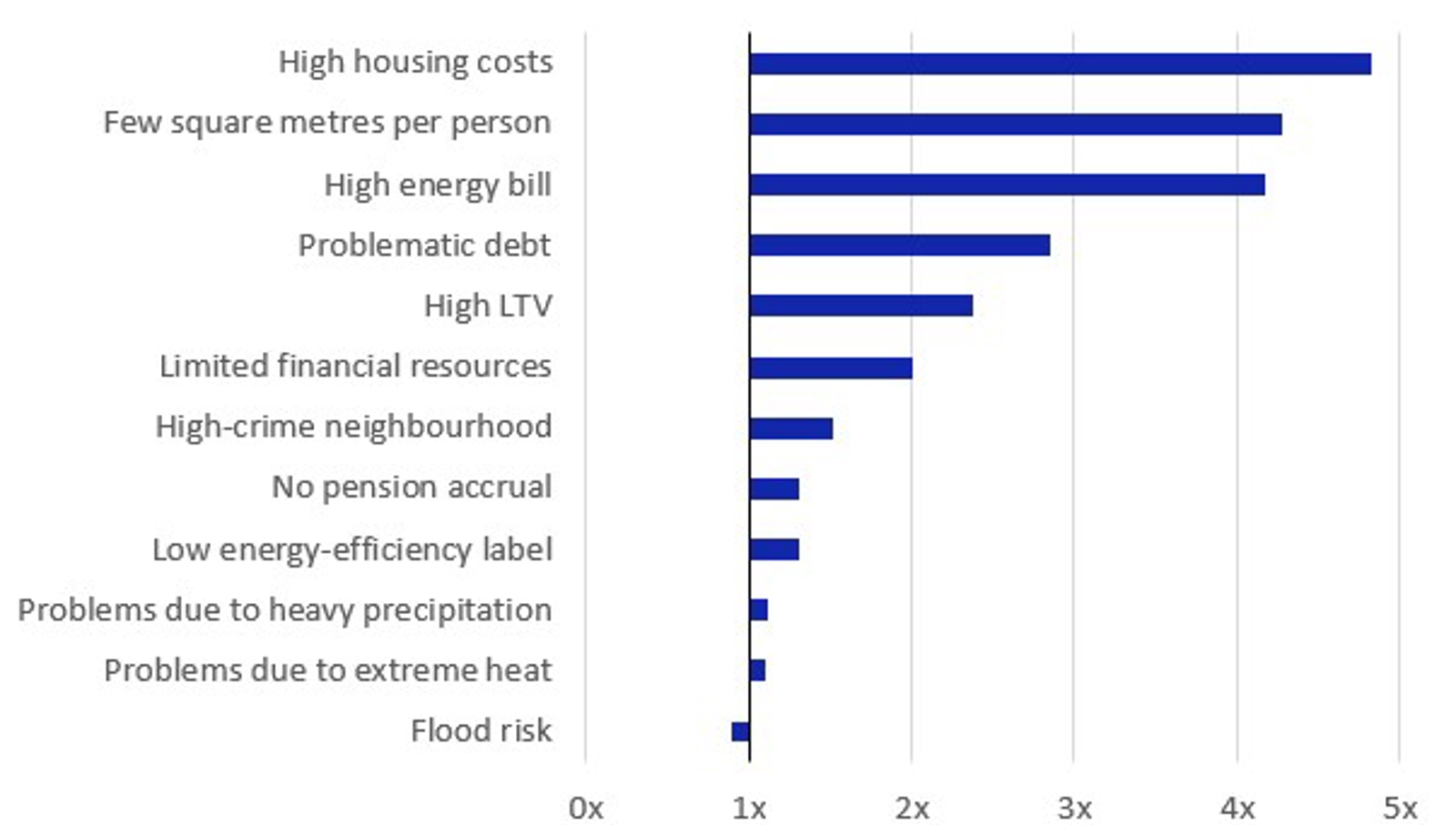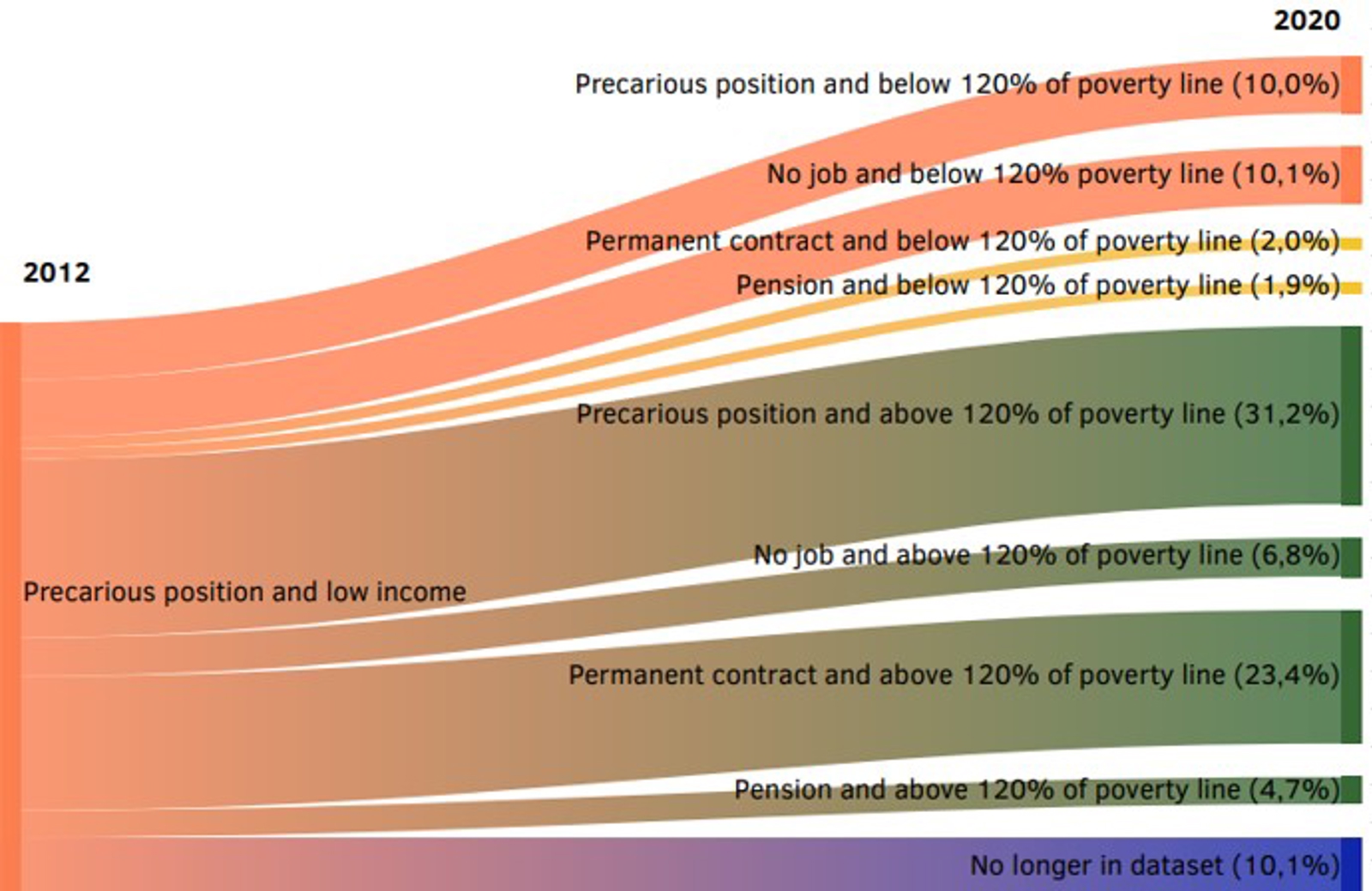This is shown in a recent study conducted by DNB. The government's labour market plans, recently submitted to parliament by employment minister Karien van Gennip, are a first step to reduce job and income insecurity.
Labour market position plays major role in vulnerability
A recent DNB study (available in Dutch only) shows that households' vulnerabilities are related to their position in the labour market. In the Netherlands, 15% of primary earners are on a flexible contract or self-employed. Not all of these households are vulnerable, however. DNB's study on people with low job and income security looks at the combination of work and income for people who are self-employed or on a flexible contract and have an income below or close to the poverty line. In this group of 165,000 households, many vulnerabilities converge.
Figure 1 shows that people in this group are almost five times more likely than average to also have high housing costs. They are also much more likely to have small homes and high energy bills. In addition, they are more likely than average to have arrears and net debt, and to have limited buffers to cope with financial setbacks.
This group includes many young people. Some 30% of the people with low job and income security are between 18 and 30 years old, compared to only 17% in the labour force as a whole. A quarter have a non-western migration background, compared to 12% in the population as a whole.
Figure 1 - People with low job and income security are also more likely to be vulnerable in other areas










